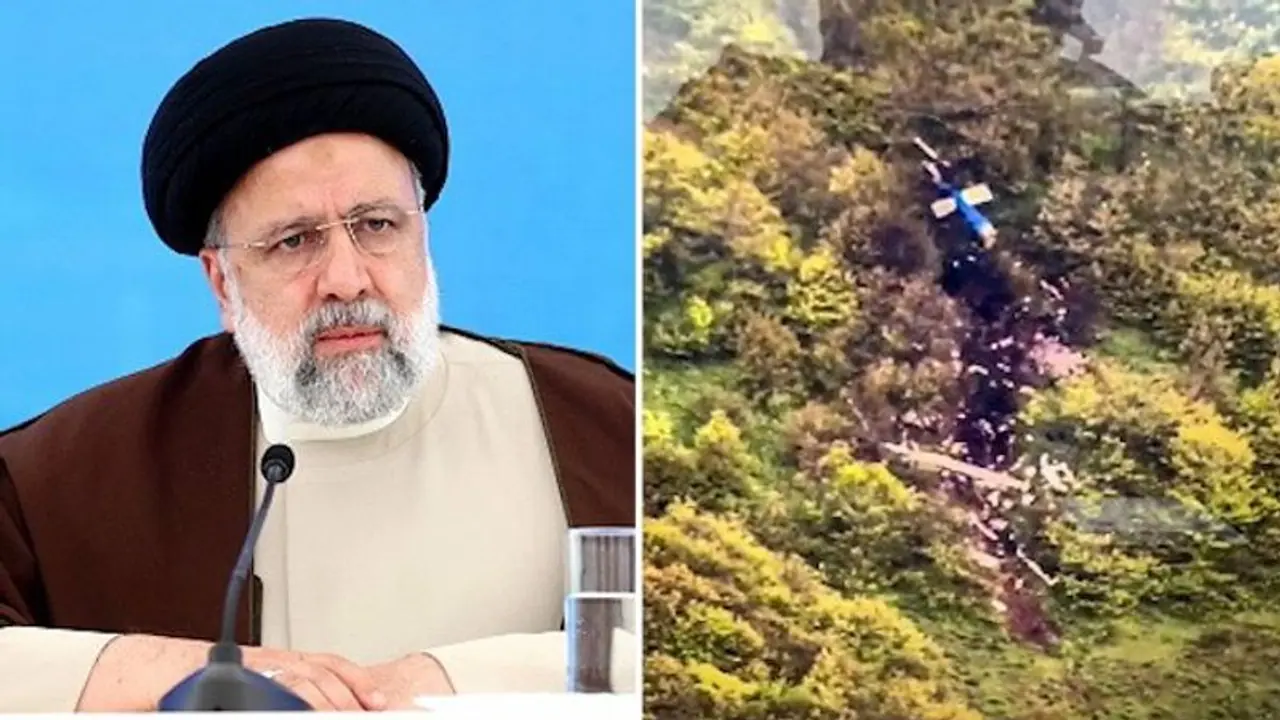An Israeli official on Monday denied any involvement in the helicopter crash that claimed the life of Iranian President Ebrahim Raisi and several members of his team.
An Israeli official on Monday denied any involvement in the helicopter crash that claimed the life of Iranian President Ebrahim Raisi and several members of his team.

"It wasn't us," stated the official, speaking anonymously, as reported by Reuters.
Condolences have been conveyed to Raisi from leaders worldwide, including Indian Prime Minister Narendra Modi. However, Israel had not released an official statement regarding the incident as yet.
Ebrahim Raisi, a prominent figure in Iranian politics known for his allegiance to the country's supreme leader and his involvement in significant historical events, including the 1988 mass executions and Iran's nuclear program, has passed away at 63.
Raisi's unexpected death, alongside other high-ranking Iranian officials, resulted from a helicopter crash in northwestern Iran on Sunday. This tragic event unfolds against a backdrop of internal turmoil and challenges in Iran's international relations.
As the supreme leader, Ayatollah Ali Khamenei holds ultimate authority over Iran's foreign policy. However, under President Raisi's leadership, Iran continued its confrontational stance towards its adversaries, particularly the U.S. and Israel.
Since the commencement of the Gaza conflict on October 7, 2023, the Iranian regime, led by Khamenei and Raisi, has carefully balanced supporting its regional proxies in countering Israel and the US while avoiding direct confrontation with these more powerful adversaries.
This balance was briefly disrupted in April when Iran directly targeted Israel with drones and missiles for the first time in history, in retaliation for an attack on Iran’s consulate in Damascus. Israel, with support from the U.S., Britain, Jordan, and other allies, successfully intercepted most of the incoming projectiles. In response, Israel reportedly conducted a strike on an air defense radar system in Isfahan, Iran. While no casualties were reported, the strike conveyed a clear message.
Although both sides have engaged in covert operations and cyberattacks for years, the April exchange marked their first direct military confrontation.
Initially trained as a cleric, Raisi often projected the demeanor of a preacher rather than a traditional statesman, as evidenced by gestures like kissing the Quran before the United Nations.
Despite being defeated by the comparatively moderate Hassan Rouhani in the 2017 presidential election, Raisi eventually assumed power four years later in an election widely seen as orchestrated by Supreme Leader Ayatollah Ali Khamenei to sideline significant opposition candidates.
His ascent came on the heels of the collapse of Rouhani's landmark nuclear agreement with global powers, which was triggered by former President Donald Trump's unilateral withdrawal from the accord. This move ushered in a period of heightened tensions between Tehran and Washington.
